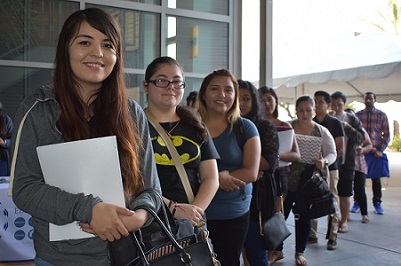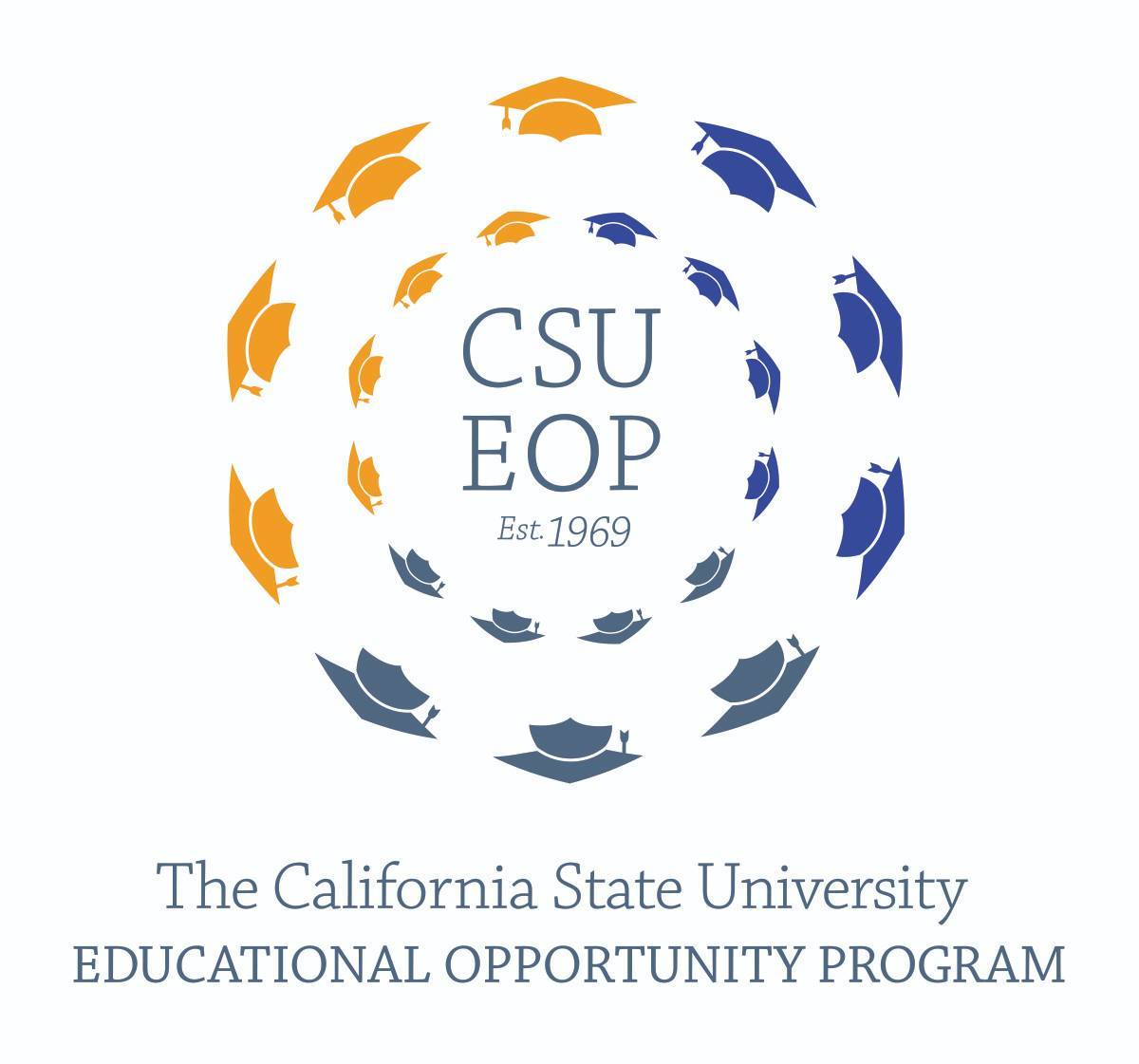 myCSUSM
myCSUSMEOP History
Celebrating 50 Years of EOP History (1969-2019)
- Where It All Began (1960's):
The Educational Opportunity Program (EOP) emerged from the Civil Rights movement of the late 1960s as a response to the call for access and equity to higher education. Almost 5 decades ago, state legislation (SB 1072) created the program to facilitate access to the university for underrepresented, low income, first-generation college students across the state. Since its inception, the primary goal of the CSU Educational Opportunity Program has been to improve access of low-income, first generation and historically disadvantaged students with potential for academic success by making higher education a possibility. For almost 50 years EOP continues to provide a comprehensive program of support services which include, but are not limited to, recruitment, preadmission counseling, orientation, summer program, diagnostic testing, financial aid follow-up, special admissions, pre-introductory instruction, academic advisement, tutoring, learning skill services, personal, educational and career counseling.
- EOP Arrives To CSUSM (1991):
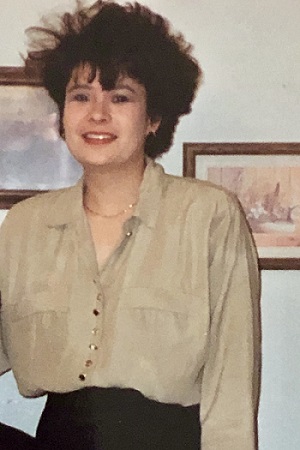
Patricia Quijada Pictured: Patricia Quijada
The history of EOP at CSU, San Marcos started in 1991 under the direction of EOP Coordinator, Patricia Quijada. CSU, San Marcos as a campus was in the second year of existence and was the newest University in the CSU system. EOP focus at the time, was on recruitment of students to promote access to higher education to students in the San Diego North County area. As one of the newest universities and fledging EOP program, the goals were set to develop a strategic plan for EOP growth and development that would provide student access to the local service area high schools and community colleges. - Strategic Plans & Development (1992-2005):
As part of the strategic plan for EOP growth, Edward Pohlert was hired as the first Director of EOP in 1992, in which he quickly brought in supporting specialist staff positions that would lay down a foundation for supplemental instruction services, Building Bridges Partnership Conference, counseling services, personal/academic counseling and robust outreach services. Early recruitment efforts focused on providing access and guidance to Transfer students since lower division students (freshmen/sophomores) were not accepted at CSUSM until in 1995.
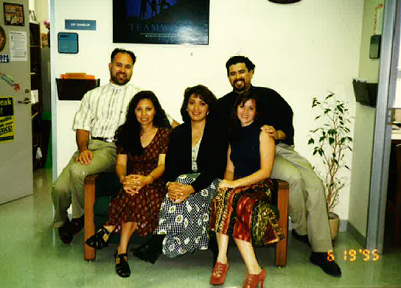
Edward P., Lorena M., Georgina M., Heather T., Henry A. Pictured from left to right: Edward P., Lorena M., Georgina M., Heather T., Henry A.)
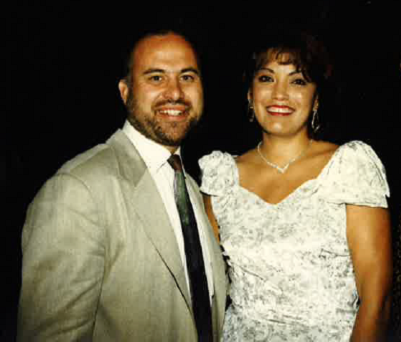
Pictured from left to right: Edward P. and Georgina M.
- Separating Partnerships For A Growing EOP (2005):
Upon the departure of Edward Pohlert from the Directorship position, Lorena Meza (now Dr. Lorena Checa) took charge of the program in 2005 as the new Director. Since the inception of EOP, EOP had been linked closely in mission, administrative line and location with Trio programs (ASPIRE, and Student Support Services).
In 2005, both the EOP program and the Student Support Services program separated from the partnership to become their own entity due to the significant growth within the EOP student population and the different funding sources for each program. The administrative change fomented the campus identity of EOP in the promotion of access and retention of first generation undeserved students in a holistic approach to services and programs. In addition, EOP played the lead role in the inception of the foster students program (ACE Scholars Services) as an innovative, top-tier program designed to support former foster youth at a time when they need it most in assisting with the transition from being cared for, to caring for oneself” through services and support systems.
- Acquiring New Leaders & Programming (2005-2011):
Cecilia Blanks took on the EOP Senior Associate Director leadership role upon the promotion of Dr. Checa to an Associate Vice President of Student Affair position. Under Director Blanks, EOP grew steadily in providing access and support to over 800 EOP students. EOP acquired the Brothers/Sisters Gonna Work it Out conferences from Outreach services in an effort to reach potential diverse students at an earlier stages of development at the high school level in an effort to increase the student funnel towards higher education attainment. The EOP offices went an extensive renovation in order to provide services to the ever growing EOP student population. EOP implemented a night parent program in order to create and strengthen the partnership with first year students’ parents that would help with the retention and graduation of EOP students.
- Restructuring & Implementing Programming:
In 2011, EOP restructured in an effort to further strengthen the program services and impact. Andres Favela took on the leadership role of both EOP and Undergraduate Advising services. As a strong campus collaborator, EOP strengthened the Summer Bridge program experience; EOP served as lead coordinator for the campus wide College Workshop Series; EOP implemented a student Peer Mentor program; EOP designed and implemented a Transfer Bridge program; created First Contact for new freshmen, transfer students, and parents of first year students; EOP implemented an automated EOP application management system; and overall strengthened retention services focused on first generation student population determined to be high “at risk” and/or in jeopardy (Academic Notice, disqualification, undeclared, non-proficient).
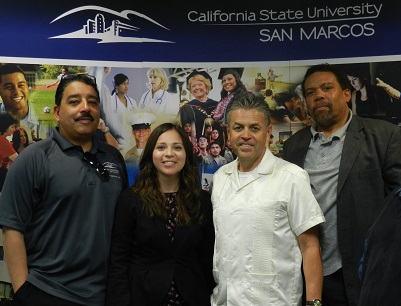
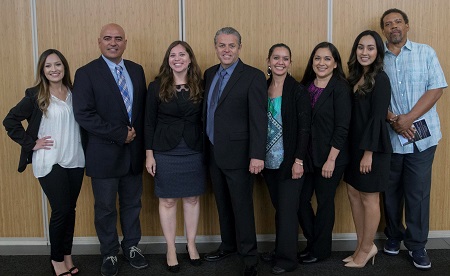
- EOP's Commitment Then & Now:
Since the late 1960’s, new patterns of immigration and program growth have changed the demographics of EOP. CSUSM EOP now serves approximately 1500 participants reflecting the local service area and the diversity of California. As the students have changed, so has the program. EOP provided then, as it does now, access to the University, EOP grants for eligible students, and support services to assist nontraditional students leading to their success. EOP’s primary goal has been, and always will be, to provide opportunities for higher education to students who might not otherwise have been able to pursue a college career. As we look toward our 50th anniversary, we continue to celebrate the program’s contribution to educational equity, diversity, and excellence.








